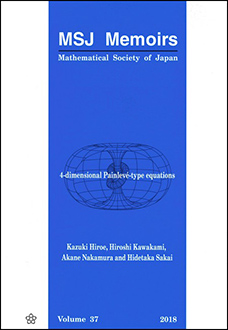Abstract
This volume provides a recent study of mathematical research on semiconductor equations. With recent developments in semiconductor technology, several mathematical models have been established to analyze and to simulate the behavior of electron flow in semiconductor devices. Among them, a hydrodynamic, an energy-transport and a drift-diffusion models are frequently used for the device simulation with the suitable choice, depending on the purpose of the device usage. Hence, it is interesting and important not only in mathematics but also in engineering to study a model hierarchy, relations among these models. The model hierarchy has been formally understood by relaxation limits letting the physical parameters, called relaxation times, tend to zero. The main concern of this volume is the mathematical justification of the relaxation limits. Precisely, we show that the time global solution for the hydrodynamic model converges to that for the energy-transport model as a momentum relaxation time tends to zero. Moreover, it is shown that the solution for the energy-transport model converges to that for the drift-diffusion model as an energy relaxation time tends to zero. For beginners' help, this volume also presents the physical background of the semiconductor devices, the derivation of the models, and the basic mathematical results such as the unique existence of time local solutions.


